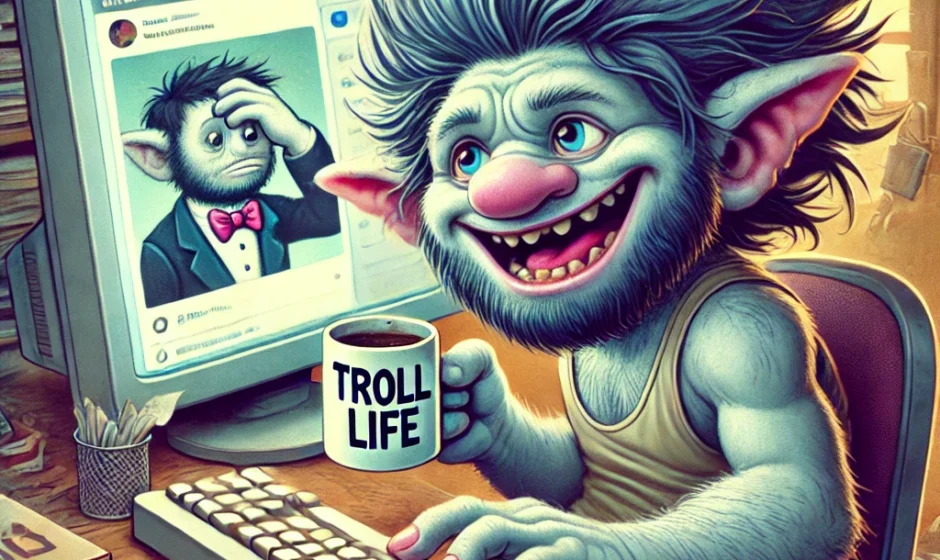Generative AI, a form of artificial intelligence that can create new content—ranging from text to images and even video—is steadily transforming media and business landscapes. As we move deeper into the digital age, the impact of AI on these industries is undeniable, creating opportunities and challenges that are reshaping how content is produced, consumed, and monetized.
The Rise of Generative AI in Media
Generative AI’s influence on the media industry has been nothing short of revolutionary. In a world increasingly dominated by digital content, AI tools are providing content creators with new ways to produce media quickly, efficiently, and at scale. These AI-driven tools, such as OpenAI’s GPT and DALL-E, can generate written articles, realistic images, and even entire videos, making it easier for creators to maintain a steady stream of content.
The media industry, especially in the realm of journalism, has begun to experiment with AI for writing articles and generating multimedia content. News agencies use AI to generate summaries of breaking news, draft reports, and even create entire stories based on data. This shift is not just about speed—it’s about efficiency. AI can scour vast amounts of data far faster than any human, enabling the generation of timely, relevant, and data-backed content in mere minutes.
However, this transformation also presents a significant shift in how content is created. Previously, journalism and storytelling were solely in the hands of humans. Now, AI is beginning to fill that role, challenging traditional notions of authorship and creativity. This leads to a rise in AI-generated news, but also questions the authenticity and accuracy of such content.
The Business Side of Generative AI
In business, generative AI is proving to be a game-changer. From automating customer service to generating marketing content, businesses are using AI to drive efficiency, cut costs, and enhance personalization.
Generative AI has found its place in industries like e-commerce, where AI algorithms analyze consumer behavior to create targeted ads, develop product recommendations, and even generate custom product designs. AI-driven tools are now capable of creating personalized marketing content for customers on a scale that was previously impossible for human teams. For example, AI can create dynamic email marketing campaigns that cater to individual preferences, increasing engagement and conversion rates.
AI’s influence extends to customer service as well. Chatbots powered by generative AI are increasingly becoming the first point of contact for many businesses. These intelligent assistants can handle everything from simple inquiries to complex customer service issues, providing efficient responses 24/7. What’s more, these AI systems can adapt over time, learning from each interaction to improve their responses.
Generative AI is also reshaping the way companies approach product development. In the past, teams of designers and engineers would brainstorm and iterate on ideas for new products. Now, AI is capable of generating multiple design concepts or prototypes based on specified parameters. This enables businesses to explore a wider variety of ideas faster, reducing time-to-market and enhancing innovation.
The Shift in Media Consumption
Generative AI isn’t just changing how content is created; it’s changing how people consume it. In the age of social media, the lines between content creators, influencers, and consumers are blurring. AI tools have empowered influencers and creators to produce more engaging and innovative content, often with less effort than ever before. Platforms like TikTok and Instagram are seeing an increasing number of content creators using AI to enhance their videos and posts.
The rise of AI-powered tools is also contributing to a shift in how audiences interact with content. Consumers today expect content to be more personalized and tailored to their preferences. AI helps achieve this by analyzing user behavior, preferences, and trends to create individualized experiences. Whether it’s recommending articles, suggesting videos, or even curating ads, AI is playing a critical role in shaping how content is presented to audiences.
Challenges and Ethical Considerations
As generative AI continues to evolve, it brings with it a host of challenges and ethical considerations. One of the most pressing concerns is the potential for misinformation. AI-generated content is indistinguishable from human-created content, which raises the risk of deepfakes and false narratives being spread across digital platforms. This poses significant challenges for media organizations, businesses, and governments in ensuring the integrity of the content being shared.
Additionally, there are growing concerns about job displacement. As AI tools become more advanced, some traditional roles in media and business could become obsolete, with automation replacing human workers in fields like content creation, marketing, and customer service. This has sparked debates around the future of work and the need for reskilling and upskilling workers to adapt to a rapidly changing job market.
Moreover, generative AI also raises questions about ownership and intellectual property. Who owns the content created by an AI? Is it the person who provided the input, the company that owns the AI tool, or the AI itself? These are crucial questions that will need to be addressed as generative AI becomes more integrated into both media and business operations.
Looking Forward: The Future of Generative AI
The future of generative AI is both exciting and uncertain. As the technology evolves, we can expect even greater integration of AI into media and business, opening up new possibilities for creativity, efficiency, and personalization. However, it is also essential for stakeholders—governments, businesses, and media organizations—to approach this evolution with caution and responsibility. The power of AI should be harnessed for innovation, but with an understanding of its ethical implications.
In conclusion, generative AI is undeniably reshaping the media and business landscapes. It offers immense opportunities for growth and creativity, but it also raises important questions about authenticity, job security, and intellectual property. As we move forward, it will be essential for society to strike a balance between embracing the potential of AI and mitigating its risks. The future of AI is here, and it is up to us to navigate it wisely.
“Generative AI in media? Oh, great, just what we need—robots writing the news. Next thing we know, AI will be covering the Oscars and we’ll be stuck with a robot accepting awards. ‘Thank you, I’ve learned a lot from all the data… now please feed me more memes.’”
“Ah yes, AI in business… Because who doesn’t love a world where our email marketing campaigns are more ‘personal’ than our best friend? I’m sure that AI-generated ‘hey, buddy’ feels just as heartwarming as my friend’s 2AM texts asking if I’ve tried a new app for productivity. Spoiler: I haven’t. I don’t need a robot to remind me of that.”
“Generative AI creating content? It’s like letting a toddler loose with a paintbrush and calling it modern art. Sure, the result might be… interesting. But is it really worth hanging on the digital wall of our inboxes? Just saying.”
“Generative AI helping create viral content? Because nothing says ‘authentic’ like an algorithm deciding what’s funny. I can’t wait to see the next big viral sensation: a dancing robot that does the Macarena while predicting stock prices. It’s not weird at all… right?”
“Oh, the world of generative AI… where no job is safe, and I’m over here wondering how long until my AI assistant takes over my social media. At this rate, I’ll be the one asking it for permission to post a cat meme.”
“Generative AI will revolutionize creativity? Sure. Because nothing screams ‘cutting-edge innovation’ like a machine replicating a human’s thoughts. I can just picture my AI making a song about love, only to end up writing an emotional ballad about Wi-Fi connectivity. Very romantic.”
“Job displacement from AI? Nah, don’t worry about it! The only thing we’ll lose is our ability to send emails without asking a robot for a ‘more personal touch.’ Meanwhile, that robot’s going to be sipping its digital coffee, waiting for the next task to improve its ‘creativity.’”
Speaking of the growing impact of generative AI, you might also be interested in exploring the fascinating concept of deepfakes, realistic AI-generated media that raises important ethical and societal questions. Curious about how artificial intelligence is reshaping industries at large? Check out more about Artificial Intelligence in Business, which dives into the revolutionary capabilities and transformative implications AI brings to the business landscape. Finally, if you’re intrigued by the creative abilities of machines, you can’t go wrong learning about Computational Creativity, where AI systems actively engage in generating art, music, and other creative outputs.




